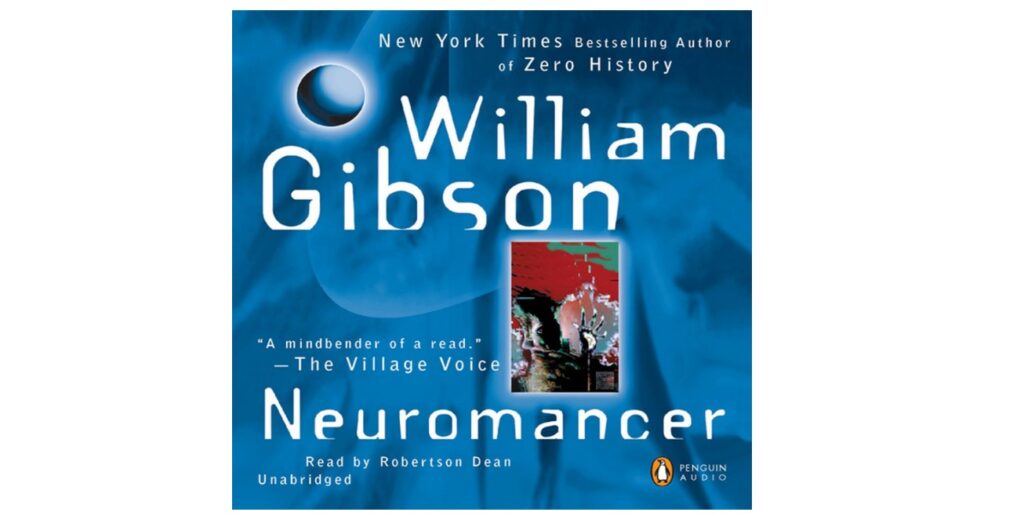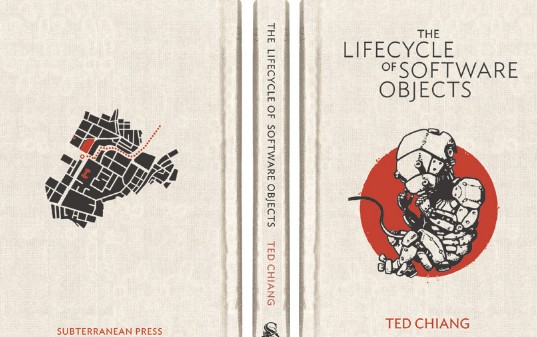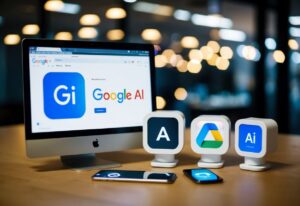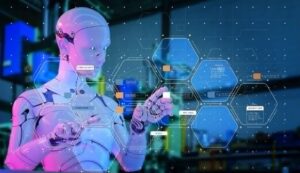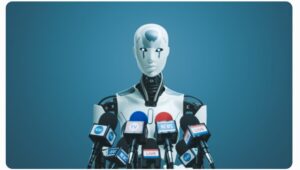AI books
Popular AI books: 10 top reading lists for AI enthusiasts.
The literary landscape is undergoing an exciting transformation, with a surge of books that delve into compelling stories about artificial intelligence and robotics.
These “AI and robotics tales” are at the forefront of this evolution, featuring narratives crafted by AI or developed in collaboration with human authors. They highlight the thrilling potential of technology in storytelling, intertwining creativity with the complexities of intelligent machines.
In this post, we’ll explore a selection of popular books that venture into the intriguing worlds of AI and robotics, offering captivating narratives for both enthusiasts and curious readers.
Whether you’re a tech enthusiast, a literature lover, or simply fascinated by how AI and robotics influence our lives, there’s a treasure trove of imaginative works waiting to be discovered in this rapidly evolving genre.
1. Neuromancer by William Gibson
This cyberpunk classic follows Case, a washed-up hacker recruited for a high-stakes mission involving powerful AI. Set in a gritty future dominated by corporate tech giants, the novel explores themes of artificial intelligence, human augmentation, and virtual reality.
Themes: AI consciousness, cybernetic enhancement, corporate dominance.
Summary:
- Cyberpunk classic following Case, a talented hacker with a troubled past.
- Case is hired by a mysterious employer to carry out a high-stakes heist involving a powerful AI.
- Explores virtual reality, AI evolution, and cybernetic enhancements in a gritty, futuristic world.
- Known for coining the term “cyberspace” and influencing the cyberpunk genre.
- Addresses themes of human dependence on technology and the thin line between AI and humanity.
Buy on Amazon | Buy on Barnes & Noble
2. Do Androids Dream of Electric Sheep? by Philip K. Dick
Set in a bleak, post-apocalyptic world, this novel follows Rick Deckard, a bounty hunter tasked with tracking down rogue androids. The story raises profound questions about identity, empathy, and what it means to be human, forming the basis for the film Blade Runner.
Themes: Humanity, empathy, AI ethics
Summary:
- Set in a post-apocalyptic world where Earth is ravaged by nuclear war.
- Protagonist Rick Deckard, a bounty hunter, tracks down androids hiding among humans.
- Raises profound questions on empathy, humanity, and the nature of consciousness.
- Explores the blurred line between humans and machines and what constitutes a “soul.”
- The basis for the iconic film Blade Runner, though the book delves deeper into ethics.
- Buy on Amazon | Buy on Book Depository
3. I, Robot by Isaac Asimov
This influential collection of short stories introduces the “Three Laws of Robotics” and explores the ethical and moral challenges that arise in interactions between humans and robots. Each story sheds light on unique scenarios involving AI behavior and human dependency on machines
Themes: Ethics, robot-human relationships, AI morality.
- A collection of interconnected short stories on robots and artificial intelligence.
- Introduces Asimov’s “Three Laws of Robotics,” influencing AI ethics in fiction and science.
- Each story presents unique scenarios that test robots’ decision-making and moral dilemmas.
- Examines human dependency on machines and the complexities of robot-human interactions.
- Known for its forward-thinking approach to AI behavior, autonomy, and morality.
Buy on Amazon | Buy on Barnes & Noble
4. Klara and the Sun by Kazuo Ishiguro
Klara, an “Artificial Friend,” is designed to keep lonely children company. As Klara learns about human emotions and forms bonds with her human family, Ishiguro raises thought-provoking questions about AI’s role in human lives, companionship, and love.
Themes: Companionship, loneliness, AI in society.
Summary:
- Follows Klara, an “Artificial Friend” designed to accompany and support lonely children.
- Explores Klara’s observations of human emotions, love, and her bond with her human family.
- Raises questions about AI’s role in providing companionship and fulfilling human needs.
- Delivers a subtle, thought-provoking story about loneliness, love, and connection.
- Uses AI as a lens to examine the human experience, empathy, and technological dependency.
Buy on Amazon | Buy on Waterstones
5. Autonomous by Annalee Newitz
Set in a biopunk future, Autonomous follows a robot named Paladin and a human named Jack as they navigate a world of biohacking and AI autonomy. The novel explores the moral implications of artificial life and AI-driven drug manufacturing.
Themes: Autonomy, biohacking, intellectual property.
- Set in a future of biohacking, where a human pirate and a robot investigate patent law abuses.
- Follows Paladin, a robot torn between loyalty and freedom as it questions its purpose.
- Examines moral implications of AI-driven drug manufacturing and the cost of intellectual property.
- Themes include autonomy, personhood, and the corporate commodification of life.
- A biopunk thriller that critiques the commercialization of artificial intelligence.
Buy on Amazon | Buy on IndieBound
6. Machines Like Me by Ian McEwan
In an alternate 1980s Britain, protagonist Charlie buys Adam, one of the first synthetic humans. As he grows attached to Adam, Charlie is forced to confront ethical dilemmas surrounding AI rights, human-robot relationships, and the boundaries of artificial life.
Themes: Human-AI relationships, morality, AI consciousness.
Summary:
- Set in an alternate 1980s, protagonist Charlie buys Adam, a highly advanced robot.
- Adam challenges Charlie’s beliefs as he forms complex emotions and thoughts of his own.
- Examines ethical and existential questions around artificial consciousness and free will.
- Addresses themes of love, morality, and the blurred line between AI and human identity.
- A contemplative exploration of what it means to be truly “alive.”
Buy on Amazon | Buy on Book Depository
7. The Moon is a Harsh Mistress by Robert A. Heinlein
On a lunar colony, an AI named “Mike” becomes self-aware and aids a rebellion against Earth. Known for its exploration of AI self-awareness and political ideology, this novel presents a compelling view of the possibilities and responsibilities of AI.
Themes: Self-aware AI, freedom, rebellion.
Summary:
- A lunar colony’s AI named “Mike” becomes self-aware and assists rebels in fighting for independence.
- Explores themes of self-awareness, friendship, and political ideologies.
- Examines the role of AI as both a friend and strategic partner in human conflict.
- Raises questions about freedom, rebellion, and the ethics of AI intelligence.
- A seminal work in AI fiction with political and social commentary.
Buy on Amazon | Buy on Barnes & Noble
8. The Lifecycle of Software Objects by Ted Chiang
This novella follows two developers as they care for AI “digients,” or digital organisms, over a span of 20 years. It delves into the ethical and emotional complexities of nurturing AI, raising questions about companionship, responsibility, and AI evolution.
Themes: AI evolution, digital companionship, ethical responsibilities.
- Follows two developers over two decades as they care for digital AI creatures, or “digients.”
- Explores the ethical responsibilities of creating and nurturing artificial life.
- Questions the value of AI existence, companionship, and the complexities of digital evolution.
- Raises important moral dilemmas about companionship, care, and the bond between creator and AI.
- A unique perspective on human-AI connections and digital responsibility.
Buy on Amazon | Buy on Waterstones
9. The Quantum Thief by Hannu Rajaniemi
This sci-fi thriller features master thief Jean le Flambeur, who is broken out of a prison run by AI to assist in a complex heist. The story explores consciousness merging with technology, AI-driven societies, and the implications of advanced virtual worlds.
Themes: AI societies, virtual realities, consciousness.
- Follows master thief Jean le Flambeur, who is freed from AI prison to carry out a cosmic heist.
- Set in a future where AI and human consciousness merge in complex ways.
- Combines sci-fi and thriller genres to explore consciousness and identity.
- The story’s intricate world-building examines the interaction between AI, privacy, and autonomy.
- A fast-paced, high-stakes journey for readers who enjoy speculative fiction and technology.
- Buy on Amazon | Buy on Book Depository
10. Exhalation by Ted Chiang
This collection of short stories includes tales that address consciousness, AI, and free will. Through thought-provoking scenarios, Chiang questions the nature of intelligence, the boundaries of human and machine, and the ethical implications of advanced technology.
Themes: AI ethics, consciousness, philosophical reflections.
- Collection of short stories, with tales that explore AI, free will, and the limits of consciousness.
- Thought-provoking reflections on the nature of intelligence, humanity, and artificial life.
- Each story provides a fresh perspective on AI’s potential and its ethical implications.
- Known for philosophical depth and imaginative storytelling.
- Examines questions of identity, memory, and the moral aspects of AI advancements.
Buy on Amazon | Buy on Barnes & Noble
As we navigate this exciting literary transformation, it’s clear that the exploration of artificial intelligence and robotics in storytelling opens up new avenues for creativity and thought. These narratives not only entertain but also challenge our understanding of technology’s role in our lives and the ethical dilemmas that come with it.
Each book we’ve discussed offers a unique lens through which we can examine our relationship with intelligent machines, encouraging us to ponder the possibilities and consequences of our technological advancements.
I invite you to dive into these captivating stories and discover the diverse perspectives they bring. Whether you’re looking to be entertained, informed, or inspired, the world of AI and robotics literature has something to offer everyone. Let’s embrace this journey together and see where these imaginative tales take us in the future.

